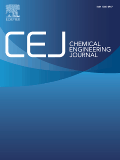Using Different Types of Sources
Use different information resources to find different kinds of information.
Reference book articles, or academic encyclopedias, are a great place to start. Go to reference for background knowledge, theoretical terms, an overview of the history of a subject or issues, key players - and leads to more information.
example of sources
Reference book articles, or academic encyclopedias, are a great place to start.
Read reference for:
- background knowledge
- theoretical terms
- an overview of the history of a subject or issues
- key players
- leads to more information.
|
 |
Read books, book chapters, and essays in anthologies for:
- in-depth analysis
- history
- opinion
- theory
- multiple perspectives
|
 |
Read newspaper articles for:
- a daily account of events and issues on a local, regional, national or international scale
- analysis of current issues
- editorial and opinion pieces
- business, environment and science news
|
 |
Read magazine articles for:
- more in-depth discussion of current events and issues in the news
- longer articles written for an interested audience in lay-person language on technology, health, science, business and more
- illustrations: charts, pictures and graphs
|
 |
View and listen to multimedia for:
- documentaries on current science, engineering and business topics
- informed discussion and analysis
- case studies & personal accounts
- background information
|
 |
Read trade articles to learn about:
- news briefs or overviews of current research and tools
- current trends and updates in the profession
- professional terminology
- opinion on governmental policy, current issues, and more
- professional development
- to find leads to more information on your subject
|
 |
Read scholarly articles and books to learn about:
- current research
- in-depth analysis
- metareviews of the literature
- professional terminology
- find data, statistics, charts, and other factual information
- to get a sense of the scope of the scholarly conversation on your subject
- to find leads to more information on your subject
|
 |






